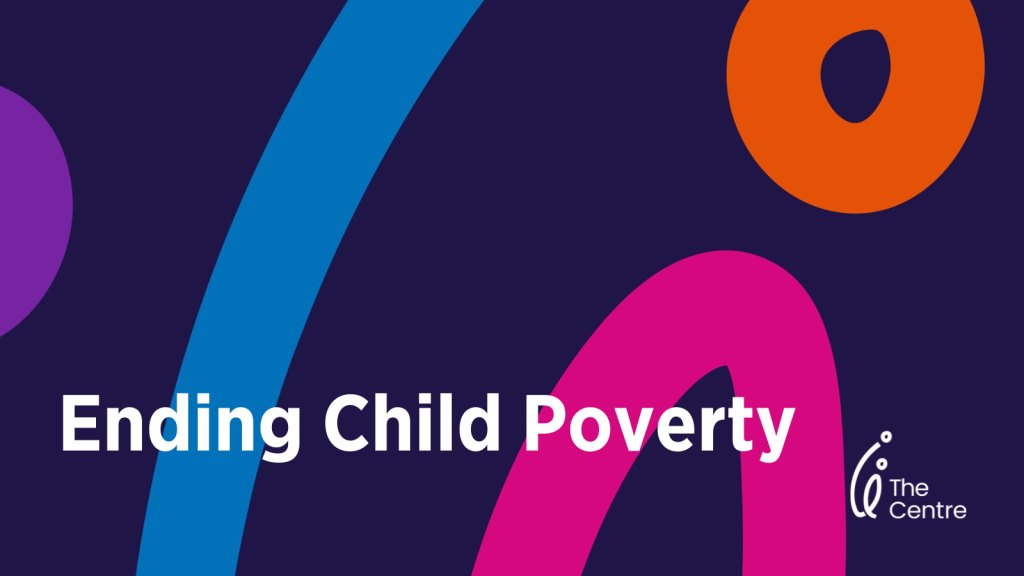The Centre has joined organisations across Australia in support of the End Child Poverty campaign launched this week, calling on all Governments, state and federal, to legislate an end to child poverty.
The campaign builds on research from ANU’s Professor Sharon Bessell, which champions a child-centred approach, noting, “We must ask children how they experience poverty both material and non-material, which will inform governments and community on how best to respond, ensuring children are seen in their own right, separate from adult poverty.”
The existence of child poverty in our country is undeniable.
We live in a high-income country with universal health, education and social services.
Amidst the prevailing household struggles exacerbated by the cost-of-living crisis, one in six children in Australia has been left in a plateau of poverty for nearly a decade – that’s 761,000 Australian children living in poverty.
The consequences are profound and far-reaching, impacting a child’s health, education, and overall wellbeing, setting the stage for a cycle of disadvantage that can persist for a lifetime. Children living in poverty are more likely to experience poor physical and mental health outcomes, struggle academically, and face barriers to accessing opportunities that could help them break free from the cycle of poverty.
Senate Inquiry Offers Little Hope
The Federal Senate Inquiry into the extent and nature of poverty in Australia handed down a disappointing report last month, which offered little hope or solutions for families in poverty.
Centre CEO Deb Tsorbaris says it was encouraging to see acknowledgement in the inquiry that children should be central to policy solutions, acknowledging children as a priority group “rather than them being treated as an extension to adults”.
“Poverty in our society is a policy choice and is something that our leaders must work together on and commit to eradicating. It can be done, but not without commitment from both sides and a willingness to leave party political agendas behind,” Ms Tsorbaris says.
A Child-centred Approach
Childhood poverty is not an inevitability but rather a systemic issue.
Addressing childhood poverty calls for a systemic shift in considering the needs of the whole child, tackling the root causes head-on, rather than one or two elements such as food insecurity or homelessness; this means implementing system solutions and setting policy drivers permanently in law so we can break the intergenerational cycle of all poverty.
At last year’s Anti-Poverty Week, The Centre hosted an event, discussing this issue in-depth, asking the question: “Why does Australia still accept child poverty, and what can be done about it?”
Keynote speaker Professor Bessell underscored the importance of amplifying the voices of children affected by poverty and recognising poverty as a structural issue. Professor Bessell also pointed to the need for policies and practices to be child-inclusive and child-centred.
You Can Help
The End Child Poverty campaign’s purpose is to help Australians understand child poverty and to take collective action to end it; they are calling on Federal Government to:
- Legislate an end to child poverty
- Include children as a priority in the Measuring What Matters national wellbeing framework
We cannot end child poverty without addressing non-material poverty for children. And we cannot end all poverty, without addressing child poverty.
You can support the campaign by signing the petition today!






